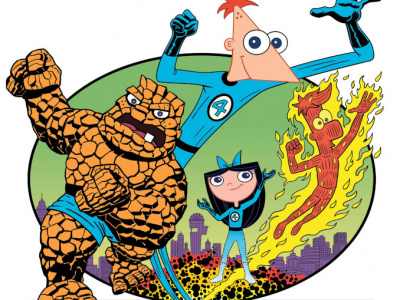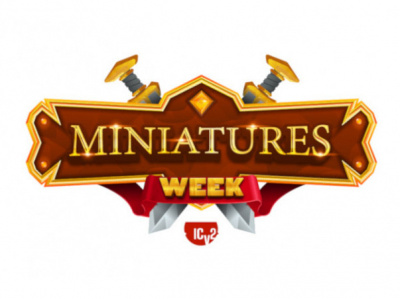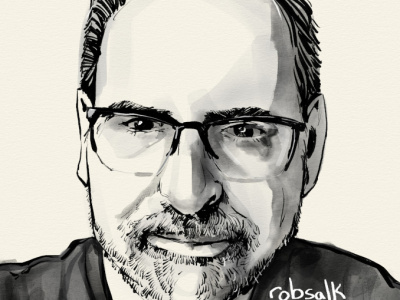 ComiXology’s big Comic-Con announcement this year is that they are making DRM (copy protection on files) optional for publishers (including creators self-publishing on the Submit platform), giving customers the opportunity to back up their digital purchases by downloading them from the cloud to local storage if they prefer. For the launch, participating publishers include Image Comics, Dynamite Entertainment, Zenescope Entertainment, MonkeyBrain Comics, Thrillbent, and Top Shelf Productions. In addition, Submit creators and small publishers are now able to choose to make their books available DRM-free.
ComiXology’s big Comic-Con announcement this year is that they are making DRM (copy protection on files) optional for publishers (including creators self-publishing on the Submit platform), giving customers the opportunity to back up their digital purchases by downloading them from the cloud to local storage if they prefer. For the launch, participating publishers include Image Comics, Dynamite Entertainment, Zenescope Entertainment, MonkeyBrain Comics, Thrillbent, and Top Shelf Productions. In addition, Submit creators and small publishers are now able to choose to make their books available DRM-free.A few years ago, this would have been a big hairy deal. Even last year, it might have raised some eyebrows. But in 2014? Unless they’ve also announced a time machine to crank the digital comics space back to 2012, this a well-intentioned pile of meh.
"Closing the barn door after the horse escaped" is the wrong cliché here. It’s like they’re opening the barn door but the horse is perfectly happy to stay where it is. And comiXology’s success is partly the reason why lifting DRM is no longer a game-changer. Here’s why.
Most consumers are now used to paying for digital comics. Back in the late 00’s, just about the only people who regularly read digital comics were people who pirated scanned copies off torrent sites. In the opinion of many in the industry, selling professionally-produced digital comics without protection would just make the scanners’ jobs easier. DRM was the ante at the table before discussions of paid digital distribution could even begin.
These days, mostly thanks to comiXology, people are used to paying for legal comics content. I guess we’ll find out in the coming months, but my strong suspicion is that the vast majority of customers will continue to buy comics through legitimate sources even if illicit copies of legally “backed-up” comics are available.
Local is overrated. Once again, cast your memory back to the good old days of 2009 when comiXology first launched its service. The idea that you should just trust the company that sold you a digital comic to hold it in safekeeping in “the cloud” was fraught with peril. What happens if the company goes out of business? It’s just a startup, after all. And besides, why trust online content when you can keep it safe and sound on your own hard drive or device?
That’s another battle that’s been won decisively: just about everyone uses cloud-based content, whether it’s called Dropbox, Netflix or Gmail. You know who’s got one of the biggest industrial strength clouds out there? Amazon. The cloud is not only more convenient, it’s more trustworthy than a crash-prone disk drive or a device that can get lost, stolen or dropped in the toilet.
And by the way, digital comics on comiXology are scanned at an insanely high resolution, which means gigantic files that will fill even your terabyte storage capacity faster than you think. Add it up and it makes the "backup" option an edge case for all but the most packratty of consumers.
Guided View is the value-add. One of the reasons comiXology won the digital comics distribution wars is because of their exclusive Guided View interface, which at this point defines how most people read and experience digital comics on mobile devices. When you backup your comics files from comiXology, you get high resolution PDF or CBZ files, which present as full pages. You still need the Comics app to get Cinematic Guided View, and if you’re using the app, you might as well let the app manage your files through the cloud as well.
The competitive landscape has changed. Back in 2011, the jury was genuinely out on whether comiXology, Graphicly, iVerse or some unforeseen new competitor would emerge as the "iTunes of comics." Because each of these companies had its own proprietary DRM scheme, the technology not only served to reassure anxious publishers, but also locked consumers to one platform or another for all intents and purposes.
Now sitting on 90% of the digital comics market by some estimates, comiXology no longer has that particular concern. Today comiXology’s biggest potential competition is from its own current partners (publishers deciding to push consumers to their own sites, many of which run on comiXology infrastructure anyway), online platforms like Apple and Google, or announced ventures that promise flat-fee subscriptions. Insisting on DRM doesn’t help in any of those fights, and lifting DRM may help marginally by putting a halo over comiXology at a time when its new corporate parent could use all the good PR it can get.
ComiXology itself never cared much about DRM and now they don’t have to. From the very beginning, the smart folks running comiXology understood that DRM is of limited business value, technically kludgy and toxic as a matter of principle with certain types of customers. It was something they did for publishers--one of the many, many things they did for publishers--as the price of doing business at the bottom of the food chain.
Well, you know that scene in every Hulk story ever where a bunch of bullies is chasing Bruce Banner and, sooner or later, realize they may not be in the fight they were expecting? That just happened, in a business sense, back in March. Amazon bought comiXology; now comiXology is Amazon: all 800 tons of it.
Sure, they may seem like some independent Soviet Republic of Comixtan within the Amazonian Federation, but make no mistake: they are Amazon and Amazon is them. Literally their first act before the ink was even dry on the agreement was to kick Apple-- Apple!--to the curb. Publishers were used to getting their way with a puny, vulnerable comiXology: "put DRM on this or we’ll go exclusive with your competitors!" (or, laughably, "we’ll put it directly on Amazon!"). Something tells me those conversations are going smashingly differently nowadays.
Credit where it’s due. By all means, let’s politely applaud comiXology for taking a step toward customer friendliness and e-commerce political correctness. Any progress on these matters in these draconian times is worth celebrating. But sorry, even if every publisher eventually goes for this, it’s not a market mover--and comiXology has only its own success to blame for taking the pizzazz out of its big SDCC announcement.
--Rob Salkowitz is author of Comic-Con and the Business of Pop Culture. Catch up with him at the Future of Geek panel at Comic-Con Friday 1pm Room 28DE. For more information on that panel see "Looking into the Future of Fandom at SDCC."







